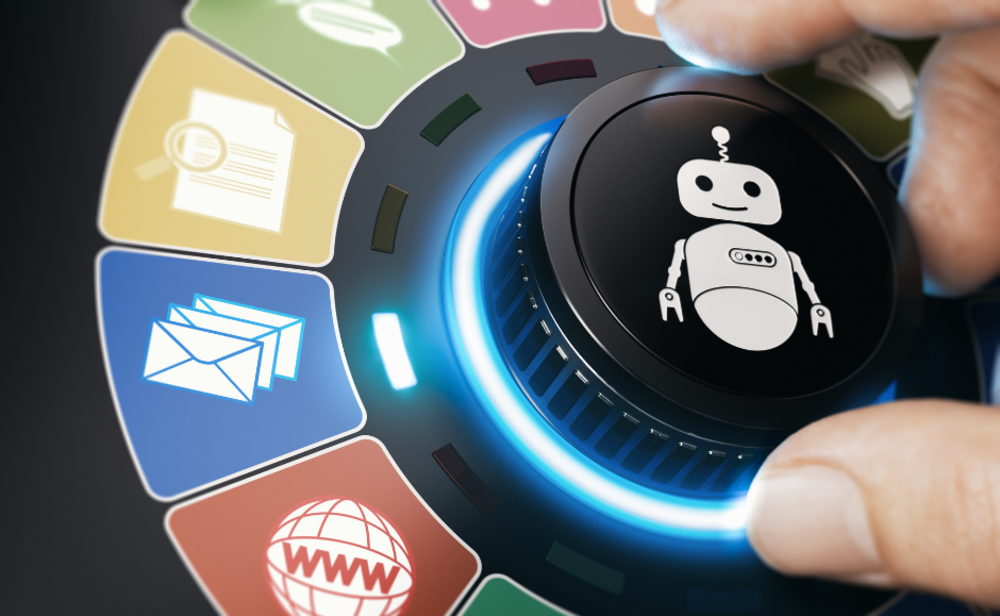Imagine gaining back hours in your work week by allowing digital assistants to handle your repetitive marketing tasks. In today’s fast-paced digital landscape, local business and franchise owners often face the challenge of juggling multiple responsibilities, from creating engaging content to managing social media and responding to customer inquiries. The mounting workload can lead to bottlenecks, missed opportunities, and even burnout. The good news is that modern advancements in artificial intelligence mean you do not have to handle everything on your own.
AI-driven task automation tools are transforming how businesses operate online. These smart solutions can automate routine activities, streamline workflows, and help you maintain a consistent presence without needing to manually intervene at every step. The question is not if AI can help your marketing, but how effectively you can integrate these AI tools for marketing tasks to achieve the productivity gains that top-performing businesses report. Whether you operate a single location or manage multiple franchises, unlocking the power of marketing workflow automation can be the differentiator between simply keeping up and truly excelling.
As digital marketing specialists with extensive experience supporting local businesses, we have witnessed how standalone automation solutions can simplify operations, increase output, and even improve customer satisfaction. In this article, we share practical strategies, real-world benefits, and expert advice on leveraging task automation tools to elevate your marketing efforts while saving valuable time and resources.
Understanding Task Automation Tools for Marketing
Task automation tools enable businesses to delegate repetitive and rule-based activities to software, powered increasingly by artificial intelligence. These tools range from automated email responders and chatbots, to platforms that curate content, track analytics, and manage advertising campaigns. Features like intelligent scheduling, instant reporting, and workflow triggers are designed to react faster than any manual process could achieve.
AI tools for marketing go well beyond simple triggers. They learn patterns in your data, suggest optimizations, and even streamline multi-step campaigns without constant supervision. For instance, if you frequently send promotional emails to your subscriber list, AI marketing efficiency tools can analyze engagement rates, schedule sends at ideal times, and automatically personalize content to segments, all without your continual input.
Standalone solutions refer to tools that perform specific functions independently, as opposed to complex, all-in-one suites. Their benefit lies in their ease of integration with existing platforms, focused capabilities, and cost effectiveness. Selecting the right tools depends largely on your business needs and current workflow challenges.
How AI Marketing Efficiency Drives Results
Speed matters in digital marketing, especially when trends, keywords, and algorithms constantly shift. AI marketing efficiency tools deliver by reducing manual labor, minimizing errors, and freeing up your team’s creative energy for strategic initiatives. Businesses adopting automation report faster turnaround times for campaigns, improved consistency in content delivery, and more actionable insights from data analysis.
Automation does not simply replace human effort. It multiplies it. By automating routine tasks, such as social media posting, lead qualification, or ad targeting, your marketers spend more time crafting strategy and less time on administrative work. Additionally, AI-driven tools can monitor campaign metrics in real time, flag anomalies, and suggest budget reallocations before resources are wasted. This ensures that each marketing dollar works harder.
For local businesses and franchises, automated solutions are particularly valuable for brand consistency across locations, timely responses to local trends, and easier management of customer feedback or inquiries. As these systems are available 24/7, your brand remains active and responsive even outside normal working hours.
Key Marketing Workflow Automation Strategies
Implementing marketing workflow automation requires a clear understanding of your priorities and processes. Start by identifying repetitive tasks that consume the most time but add minimal creative value. Common examples include social post scheduling, monthly reporting, contact segmentation, and email follow-ups. Once identified, explore solutions tailored to these activities.
Many tools are designed for easy adoption. For example, platforms like Zapier allow you to connect your existing software tools without complex coding, creating automated series of actions known as “Zaps”. Content marketing platforms use AI to curate articles, suggest relevant topics, and schedule posts based on audience engagement patterns.
For franchises or multi-location businesses, consider automation strategies that centralize campaign creation but localize distribution and messaging. AI-powered tools can adapt content based on location, demographics, or historical performance, ensuring relevancy at every touchpoint. Automating basic processes like review requests, booking confirmations, or lead routing also optimizes operational efficiency and customer experience.
Choosing the Right AI Tools for Marketing Task Automation
The AI tool landscape is broad, so it is important to select tools that align with your existing tech stack and marketing objectives. Evaluate platforms based on user-friendliness, integration options, analytics depth, and scalability as your needs grow.
Look for vendors with proven experience in your industry and positive reviews from businesses of a similar size. Request demonstrations to ensure the tool addresses your specific pain points. Prioritize solutions with strong data security protocols and transparent reporting, as these factors establish trust with both your team and your customers.
Some popular categories include AI-driven email marketing systems, chatbots for customer support, and campaign analytics dashboards. For local businesses, location-based automation tools that sync with Google Business Profiles or manage digital review responses offer immediate marketing workflow automation benefits. By testing these tools on a limited scope before full rollout, you can fine-tune settings for optimal results.
Maximizing Impact While Minimizing Risks
While AI offers significant efficiency gains, successful implementation requires ongoing oversight. Use automation to supplement, not replace, human insight and personal interaction. Establish clear guidelines for escalation if a customer request falls outside an automated response pattern. Review analytics regularly to identify where further optimization is possible, and periodically update processes as your business grows or customer preferences shift.
Data privacy also remains paramount. Ensure your chosen automation tools comply with regulations relevant to your market, such as the Australian Privacy Principles. Transparent communication with your customers about how data is used builds trust and demonstrates your commitment to responsible marketing practices.
Finally, engage your team in the transition. Provide training and resources to help them understand how automation can improve their daily workload, rather than viewing AI as a threat to job security. When staff can focus on tasks that require creativity and judgment, job satisfaction increases and business outcomes improve.
Conclusion
Task automation tools and AI-driven marketing solutions are rapidly changing the landscape for local businesses and franchise operators. As digital marketing continues to evolve, the pressure to deliver more outputs with fewer resources grows. By harnessing the right AI tools for marketing, you free your team from repetitive workload, improve campaign performance, and enhance overall efficiency. These benefits go beyond the back office, impacting customer satisfaction, brand perception, and ultimately, business growth.
Choosing which parts of your marketing workflow to automate should not be rushed. A thoughtful approach, beginning with your most time-consuming tasks and scaling up with proven, safe tools, leads to sustainable gains. Remember that AI is most powerful when it works in tandem with human expertise, not as a replacement.
If you are uncertain where to start or how to implement AI-powered workflow automation in your business, the right partner can make all the difference. Our team at Top4 Technology specializes in designing and deploying marketing automation strategies tailored to Australian local businesses and franchises. Contact us today to discuss how task automation tools and AI marketing efficiency can transform your operations and help you stay one step ahead in this competitive environment.


 SAUDI ARABIA
SAUDI ARABIA

























